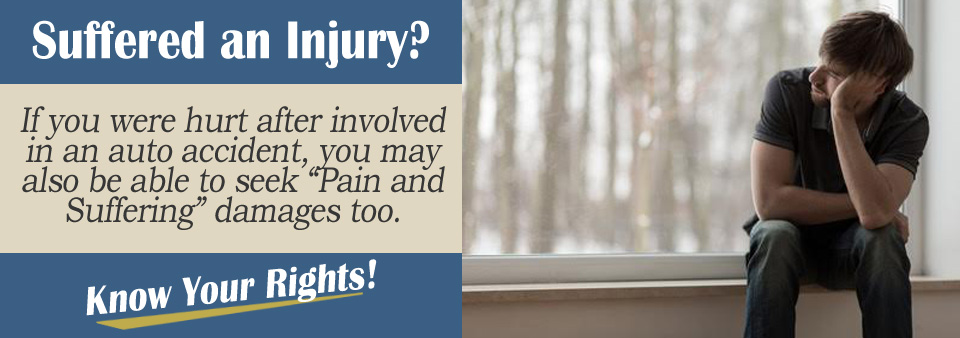In any accident, an injured plaintiff can seek two different types of damages. The first type of damages is actual damages, meaning actual, provable losses, such as financial loss, property damage, and medical injuries.
The second category is otherwise known as general damages, which include damages that are more commonly known as pain and suffering. However, what does pain and suffering include?
We have asked attorney Alaina Sullivan about what you should do. Here is what she had to say:
Pain and Suffering Damages
Pain and suffering can include many things. It can include future wages if you are not able to work for a period of time, depending on the length of your injury. It can include compensation for your inability to do the social activities you enjoyed doing prior to your injury.
If you were an avid rock climber prior to your accident, and you are now no longer able to do this activity, you could seek monetary compensation for this loss of enjoyment. You can seek compensation for your inability to drive your car again, to do your housework, or even to have sex.
In addition, pain and suffering can include emotional injuries you suffer as a result of your loss of enjoyment to do your job and your decreased productivity.
What Is Decreased Productivity?
Decreased productivity means more than more time on solitaire than doing actual work. For many employees, their pay depends on being productive and successful. For those employees who work off of commission, if they are not productive, they do not earn their income.
Further, being productive at work means being of more value to your employer. You are more likely to receive a raise or bonus if your employer seeks your productivity and considers you to be a “star” employee.
If your consistent physical pain that results from an accident or your emotional pain resulting from the same causes you to no longer be able to be productive at work, you can attempt to seek compensation for pain and suffering due to this decreased productivity.

Proving the Cost of Productivity
However, how do you put a number on decreased productivity? It depends on your job. You could show income you received in the past through commission when you were working at your normal “pace” of work, compared with what you are able to earn now due to your lack of productivity from the accident.
You could also give a price for your average bonus received if you were performing well at your job. You will need to show that you were actually a productive employee and that you regularly received a bonus because of your hard work.
You may even need some type of statement or proof from your employer or your supervisor that you were, in fact, a “productive” employee and maybe a statement that you were struggling as a result of your injury to maintain that same level of productivity.
You can also show that you are emotionally suffering from depression or anxiety as a result of this failure to succeed at work due to your injuries. It can encompass much more than just income loss. If you are finding it hard to get up in the morning and go to work because you know that you are no longer the productive employee you once were, you could also seek damages for that injury.
However, proving the monetary amount for that specific injury can be a bit tougher than showing income figures. It is recommended you speak with a personal injury attorney if you believe that you might qualify for this category of damages.
Contact an Attorney Today
A licensed personal injury attorney will be able to evaluate your case and determine if you have a claim against the other party’s insurance company for pain and suffering injuries. To see if you do qualify and to receive compensation for your pain and suffering, you should speak with a personal injury attorney in your area today.